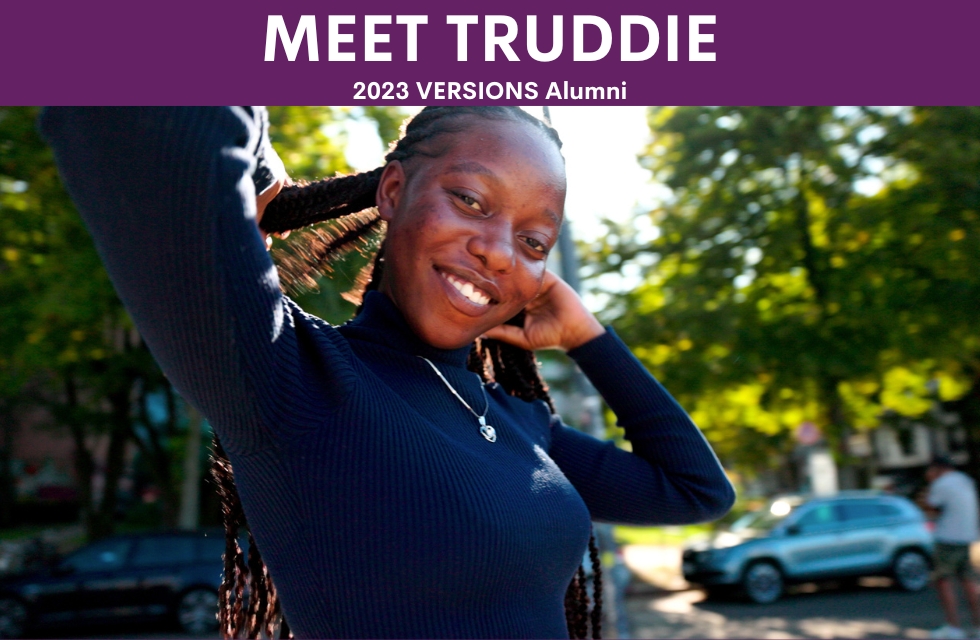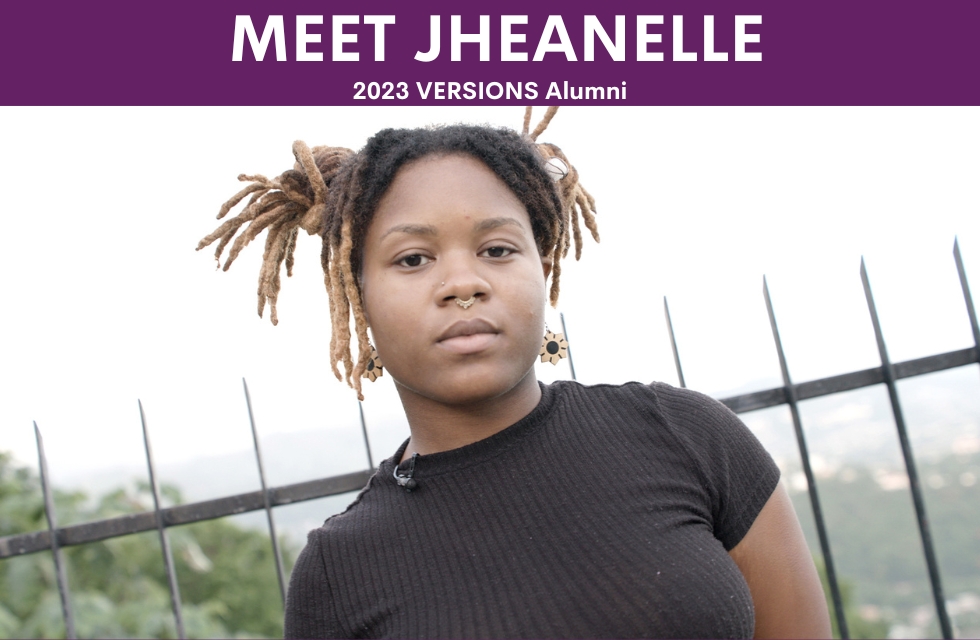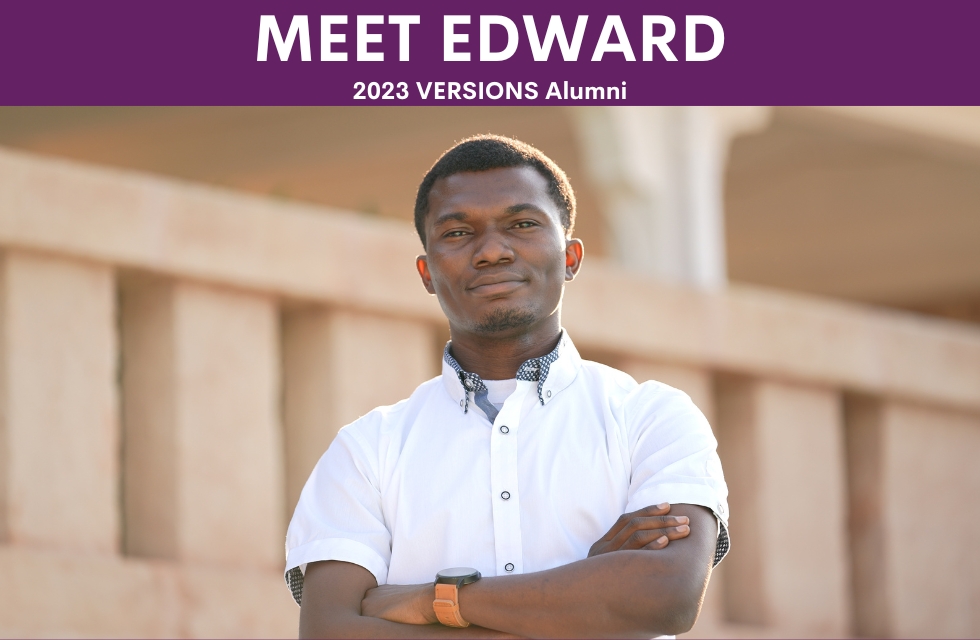"Now, I believe in myself. I trust my soul." In this series, we're highlighting our…
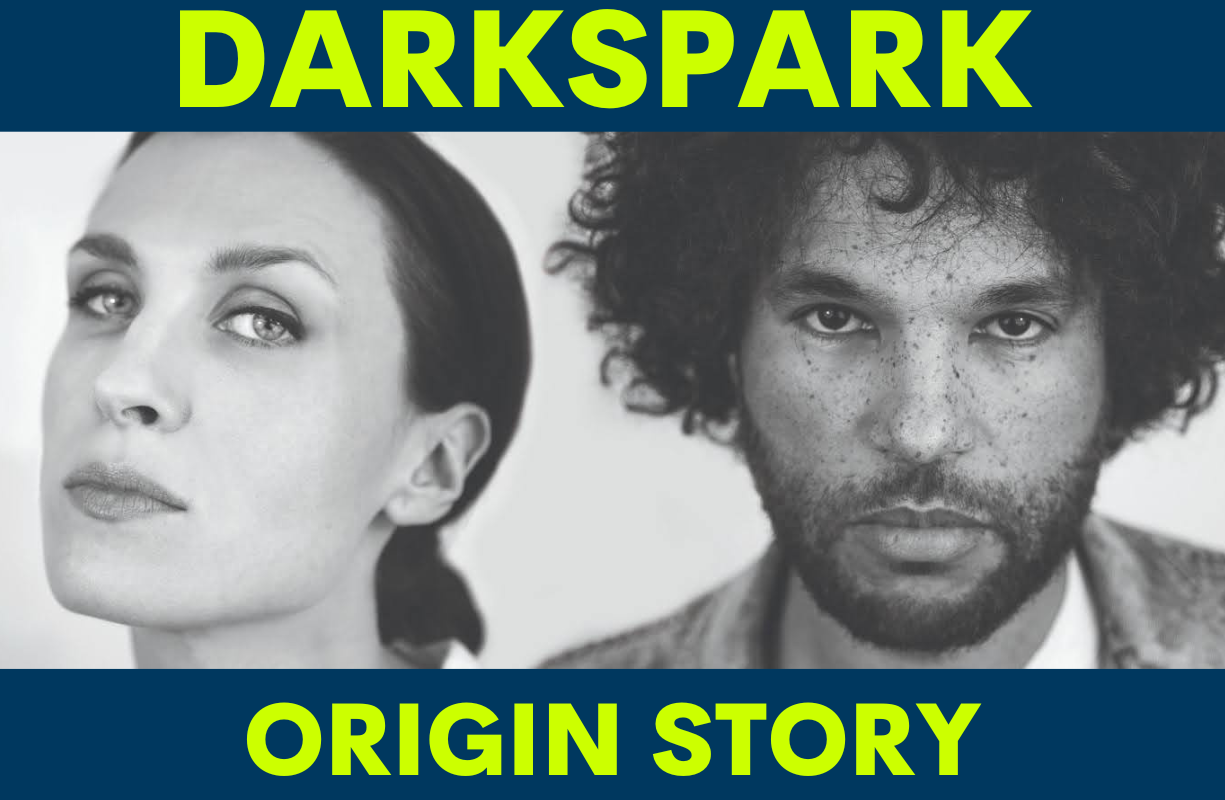
Darkspark Origin Story: The Birth of an Artist-Led Non-Profit
We never set out to start an organization. As with so many things in our life, it kind of just…happened.
Back in 2008, D’Ari and I made a major (and insane) life transition and moved to an abandoned farmhouse in the middle of nowhere. It was baffling to our friends and family as to why two kids in their early 20s would want to leave a lively and convenient city for this new, challenging life. We were both actively touring as musicians and singer-songwriters – living out our artist dreams who now found ourselves learning how to renovate an 1870s farmhouse using YouTube tutorials.
A couple of years later, I received a call from a friend who worked at an organization called Learning Through The Arts, a program run through the Royal Conservatory of Music in Toronto. They had launched a program which partnered artists with teachers to teach units of curriculum using arts education. Dancers teach Grade 5 math using movement; painters teach grammar, and kids who don’t usually engage with school suddenly do. I had never heard of such a thing but had always been passionate about youth and education, and when I was asked to teach a history unit using songwriting, I accepted the challenge.
Quinte Mohawk School
I was invited into the Quinte Mohawk School, an elementary school on the Tyendinaga Mohawk First Nation near our home. I was being asked to teach a unit of Canadian history to a Grade 8 class of Mohawk youth. As a white woman being invited into an Indigenous space, I was especially conscious of needing to ensure that I collaborated with the teacher, principal and community to make sure the lessons I prepared captured history as accurately as possible. Turns out, I didn’t know nearly as much as I thought.
I immediately began reading the textbooks and wasn’t surprised to see how skewed the history was – much had been omitted, and Indigenous people were barely mentioned. Instead, the confederation of Canada was described as a “victory for all.” I went to work compiling my own research, interviewing school members and Elders, and putting my creative brain to the task of teaching this brutal history in the most sensitive and effective way I could dream up.
Thanks to the collaboration, the classes were a tremendous success. Using a variety of arts education activities, we explored Canada’s colonial history and how it had impacted Indigenous people, families and communities across Canada and in Tyendinaga. Together, we wrote songs reflecting on the painful realizations made during these lessons to process and place all of the emotions that this brought up.
D’Ari is an incredible producer and engineer and generously offered to volunteer to build a mobile recording studio in the school so the students could record their songs and have a token to take away from the experience and share with their families. We hosted a community presentation, and the youth were able to stand in front of their families and friends and share what they had learned and the moving songs they had created.
D’Ari and I thought that was it! A beautiful experience in a community that had become close to our hearts.
We were wrong.
Darkspark Begins
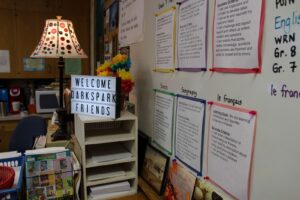
The program went so well that a longstanding collaboration with Tyendinaga ensued. We were invited back for several consecutive years to run the same program for the Grade 8 class. At the time, we were working on a side project, a dark electronic experimental project called Darklark, and we decided to call the work we were doing in the school Darkspark – an offshoot of this music project, which also had a deeper meaning. We felt that through this work we were diving into the darkness of society, but through music, art and intercultural collaboration sparking change, light and hope in the youth we worked with.
Four Directions
Eventually, the principal at Quinte Mohawk School approached with an idea to do something bigger. We applied for funding that allowed us to spend a full month in the school and dreamed up a robust program that left no student in the class behind. We challenged the class to conceptualize, write, and record a full EP of songs (like this one) reflecting on colonial history and then tasked them with designing the album, marketing it, and promoting it online and to the media. At the end of the program, when the EP was about to be sent to print, we realized that they hadn’t yet named their CD. They decided to call the project Four Direction. Though it seems to have a deeper meaning, perhaps tied to the important Indigenous teachings of the four directions linked to the medicine wheel, it was actually inspired by the class’ passion for the band One Direction, which made us laugh. Despite accomplishing this incredible thing, they were still 12 years old after all. The EP was a huge success. It was sold locally to raise money for missing and murdered Indigenous women. The youth sent it to Parliament Hill to support Teresa Spence’s hunger strike, which was happening at the same time, and they even reached out to Juno award-winning artists who collaborated on the recording. They received press from CBC and numerous local outlets, and the community was thrilled, as were we.
At the community presentation, there wasn’t a dry eye in the room. At the end of the presentation, one of the students who had been extremely reserved but who had come out of their shell throughout our time with them took the stage. He challenged us to take this same project to the four directions of Canada. It was fitting that this project began and ended with a challenge – something that is somewhat of a theme in Darkspark’s trajectory. D’Ari always likens this moment to being proposed to on the jumbotron at a sporting event. Even if you don’t want to say yes, you do in order to save face in front of the audience. Our acceptance of this challenge was very much like that – we were just two people who did this once a year, had no formal organization around us, no funding, and no idea how we would accomplish something of that scale, but we agreed.
Then, we got to work.
Setting Sail
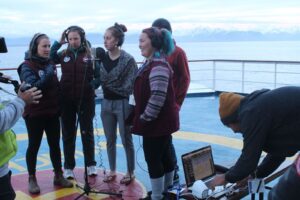
I was able to find some funding, and to our surprise, communities were eager to support us to bring this program to their youth. In 2016 we travelled to Potlotek, Cape Breton to a Mi’kmaq community, Haida Gwaii, BC to work with Haida youth, and in 2017 ended up on a ship sailing the Northwest Passage through Nunavut and Greenland working with Inuit youth in a studio we built in the ship’s sauna, while icebergs floated by. On that ship, we were introduced to Bruce and Vicki Heyman, the former ambassadors to Canada for the Obama administration. We built a close connection with them and two youth they had sponsored from the south side of Chicago who also were on board, whom we connected with and later worked with deeply. (This will be important in a moment).
We had done it! Visited the North, East, South and West of Canada, delivering a program we now felt deeply invested in, using our favourite art form – songwriting and music to create impact in the lives of the youth and communities we visited. We thought we were done.
We were wrong. Again.
Getting the Grant
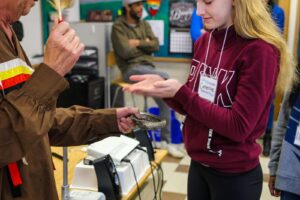
By this point, an organization had started to form around us. Family and friends who had worked in the charitable sector recognized that we were onto something and that there was a demand for our work and ideas. We incorporated as a not-for-profit with a small volunteer board and put in our first major funding application.
As we continued to navigate the very new world of starting up an organization, while raising a young family and (continuing) to renovate a still very unfinished farm, an email came in. D’Ari had been selected to attend the inaugural Obama Foundation Summit as one of two changemakers to represent Canada! Off he went to Chicago while I kept the fires burning at home on the farm.
What transpired at the Summit is story enough for another blog, but in short – he was able to meet and wow President Obama, his lovely sister Maya Soetero and so many others. The Summit confirmed that we were where we were meant to be – seated next to innovators working to change the world in unique and impactful ways. As he walked out of the Summit, Obama’s words ringing in his ear to “get out there and change the world,” he wondered, but how?
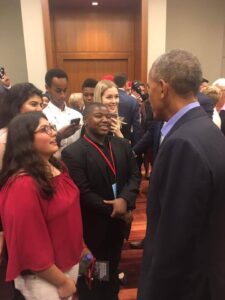
Just then, as he stepped into the Chicago October air, his phone rang. His mother, Sonia – a former Executive Director of 30 years who had just become our new corporate secretary – was on the line and the connection was terrible. Calling from the Sahara Desert in Morocco, her message was clear after a few attempts of her voice cutting out – “WE GOT THE GRANT!”
Federal funding allowed us to replicate the Four Directions Project nationally. Throughout 2018-2019 we had the opportunity to visit almost every province and territory across the country traveling with our small but mighty media team and working with Indigenous and non-Indigenous youth across Canada to challenge colonial history and dream up a better future. We produced over 40 songs and 11 short documentaries representing each of the communities we visited, which garnered over 36 million impressions worldwide. The project was awarded the Intercultural Innovation Award by the UN at the end of 2019, which D’Ari and I were honoured to accept on behalf of all of the communities, Elders and youth we collaborated with over those years.
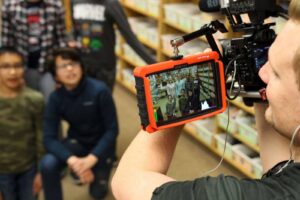
In 2020, we decided we were going to take a couple of months off to complete some business development and figure out our next moves as an organization. Thanks to 2020, those few months turned into a year. We were certain we were going to have to close our doors due to the fact that all of our programming up until that point had been grassroots and in-person, travelling to work with youth and communities. Thankfully, we were able to secure some funding to allow us to pivot and dream up a new program, which would allow us to take our work virtual and global – something that had always been a dream.
VERSIONS
In 2022, we launched VERSIONS, a global anti-racism and discrimination project, which opened our eyes to a whole new world of programming, working with youth and communities tackling racism and discrimination using our own innovative pop culture recipe. We graduated the inaugural cohort of the VERSIONS Fellowship in 2023, which represented 27 youth leaders from 8 countries around the world, grew our staff, and expanded our impact and reach more than we could have dreamed.
2024 is here, and in some ways, we feel like this is just the beginning of Darkspark. As any entrepreneur knows it takes time to find your footing, especially in the charitable sector, which has its own unique set of challenges, even more so when the organization you founded wasn’t really part of your plan in the first place. We think back to the humble beginnings of Darkspark with so much warmth and gratitude – for the impossible string of events that brought us to this place and the amazing places and people we’ve gotten to know and love. But most of all, we’re grateful to the group of 12-year-old youth who challenged us and proposed to us on the jumbotron of their community gymnasium in Tyendinaga, Ontario, changing our lives forever. We’re so glad we said yes.


